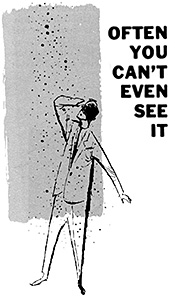| |
|
|
| |
MASSIMILIANO TOMBA |
|
| |
Insurgent universality refers to the excess of equality and freedom over the
juridical frame of universal human rights. It announces a politics beyond the
state. While the histories of human rights usually give ample consideration
to the proto-Declaration of 1789, they do not pay enough attention to the
Declaration of 1793. However, the neglected Declaration of 1793 allows us
to consider the forgotten history of active struggles—most notably, that of
women, the poor, and slaves—a set of struggles that, in their concrete configurations,
helped to shape the Declaration's radical claims. Comparing
these two declarations by examining their respective contexts and contents,
this paper delineates the limits of rights declarations as juridical texts and
presents a critique of their universal aspirations. At the same time, however,
the paper outlines an alternative conception of universality that the 1793 Declaration
brings into view in the very tension between the concepts of citizen
and man that it deploys. In contrast to the juridical universalism of 1789, the
insurgent universality of 1793 is one that both opens up the political form of
the state and introduces possibilities for radical social and political change.
Read |
|
| |
|
|
|
| |
|
|
| |
JOSEPH MASCO |
|
| |

Being able to assume a planetary, as opposed to a global, imaginary is a
surprisingly recent phenomenon. Although depictions of an earthly sphere
are longstanding and multiple, I would argue that the specific attributes of
being able to see the entire planet as a single unit or system is a Cold War
creation. This mode of thinking is therefore deeply imbricated not only
in nuclear age militarism, but also in specific forms of twentieth-century
knowledge production and a related proliferation of visualization technologies.
A planetary imaginary includes globalities of every kind (finance, technology,
international relations)—along with geology, atmosphere, glaciers,
oceans, and the biosphere—as one totality.  What is increasingly powerful about this point of view is that it both relies
on the national security state for the technologies, finances, and interests
that create the possibility of seeing in this fashion, but also, in a single gesture,
exceeds the nation-state as the political form that matters. A planetary
optic is thus a national security creation (in its scientific infrastructures,
visualization technologies, and governing ambitions) that transcends these
structures to offer an alternative ground for politics and future making. Proliferating
forms of globality—including the specific visualizations of science,
finance, politics, and environment—each achieve ultimate scale and are
unified at the level of the planetary. This achievement ultimately raises an
important set of questions about how collective security problems can, and
should, be imagined. What is increasingly powerful about this point of view is that it both relies
on the national security state for the technologies, finances, and interests
that create the possibility of seeing in this fashion, but also, in a single gesture,
exceeds the nation-state as the political form that matters. A planetary
optic is thus a national security creation (in its scientific infrastructures,
visualization technologies, and governing ambitions) that transcends these
structures to offer an alternative ground for politics and future making. Proliferating
forms of globality—including the specific visualizations of science,
finance, politics, and environment—each achieve ultimate scale and are
unified at the level of the planetary. This achievement ultimately raises an
important set of questions about how collective security problems can, and
should, be imagined.
Read |
|
| |
|
|
|
| |
|
|
| |
TRAVIS M. FOSTER |
|
| |
Sarah Orne Jewett’s 1884 bildungsroman, A Country Doctor, can be summed up
quickly. On the cusp of death, an alcoholic mother returns to her hometown
and leaves her infant daughter, Nan Prince, in her own mother’s care. Nan's
grandmother and the local doctor then respectively provide Nan a loving,
largely happy childhood. During her adolescence, Nan declares her intention
to become a doctor rather than a wife, a plan she succeeds in fulfilling
by the novel's conclusion.
Read |
|
| |
|
|
| |
|
|
| |
IRIS VAN DER TUIN |
|
| |
A few years ago I watched Margarethe von Trotta's period film Hannah Arendt
(2012) in an Amsterdam cinema. The film, set between 1960 and 1964, follows
Arendt as she reports on the Eichmann trial in Jerusalem for the New Yorker,
writing the articles that would eventually become anthologized in the book
Eichmann in Jerusalem: A Report on the Banality of Evil (1964). In the film we see
Arendt, played by Barbara Sukowa, in several places: in New York City, in
Israel, in a cottage in upstate New York, and in the woods in Germany. In a
striking scene depicting a phone call between Arendt and New Yorker editor
William Shawn, we see Arendt refuse Shawn's insistence on a timely delivery
of her texts simply by asking a rhetorical question: "Or did you want to pressure
me with a deadline?"
Read |
|
| |
|
|
| |
|
|
| |
COLINE CARDI
GENEVIÈVE PRUVOST
translated by WILL BISHOP and SYLVIA SCHAFER |
|
| |
Exhuming, denaturalizing, historicizing, and politicizing women's violence
implicitly means pointing out something fundamentally unthought that
undergirds a major share of the research on violence. Such studies tend to
consider only masculine forms of violence and relegate the minority participation
of women to the margins without noting the gendered dimension
of the categories in use. The task before us, then, is not only to qualify the
minimal participation of women by showing their more active role, but also
to interrogate the social order that undergirds the assignation of women to
the position of "a-violence," not to be confused with the political position
of nonviolence . . .
Read |
|
| |
|
|
|

